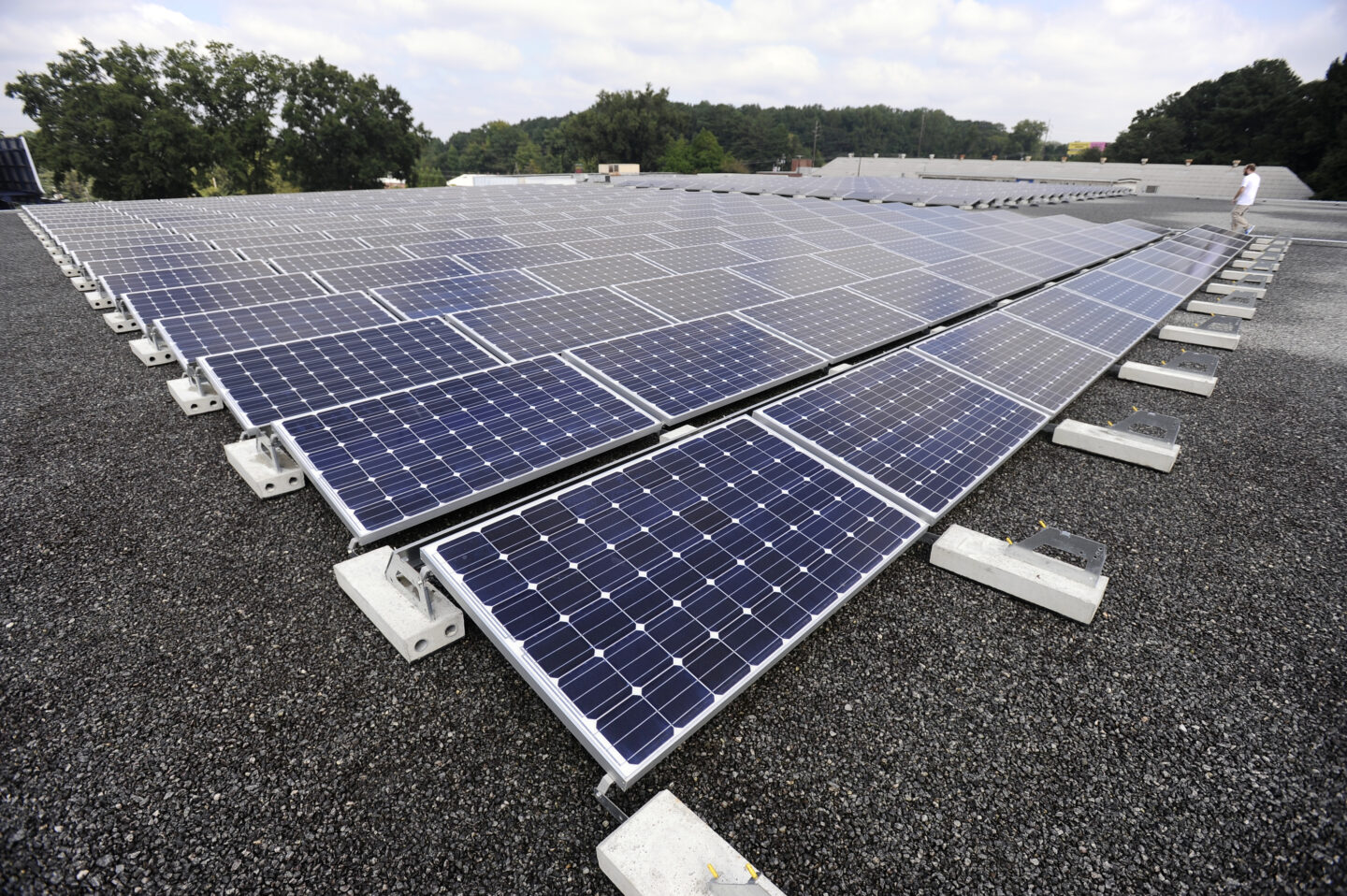Solar manufacturer Qcells’ plan to expand in Georgia is part of a broader effort to make solar panels in the United States, instead of buying from overseas. It’s also the latest in a string of manufacturers to announce intentions to bring green jobs to Georgia, though the state has no emissions reduction targets of its own.
The company announced Wednesday it will invest more than $2.5 billion to expand its Dalton plant, build a new one in Cartersville and hire more than 2,500 people.
Parts of the Inflation Reduction Act (IRA), which President Joe Biden signed into law last year, are written specifically to drive American clean energy manufacturing. The law includes incentives for companies like Qcells to make solar panels here, and bonus tax credits for power companies if their solar farms’ components are made in the U.S.
Democratic U.S. Sen. Jon Ossoff said this week that the Qcells expansion will help create the country’s first fully domestic solar supply chain.
“That’s going to reduce our dependence on Chinese imports for this strategic technology and help more Americans access affordable, abundant and clean energy sources,” he said.
Problems with imports
Most solar panels and their components currently come from overseas, and that can create real problems for solar projects in the U.S.
“If we don’t have the full supply chain in the United States, we’re reliant upon another country to have us meet our goals,” said U.S. Energy Secretary Jennifer Granholm.
Just last year, uncertainty over import tariffs forced Georgia Power to delay nearly one gigawatt of solar power projects — as much power as a typical nuclear reactor. Other projects in the region faced similar delays.
Installers of smaller, rooftop solar arrays said they also faced supply chain delays last year.
The impact was significant enough that it affected the Southeast’s overall energy outlook, according to the Southern Alliance for Clean Energy, which tracks renewable energy adoption.
“If we continue to rely on overseas production, we will remain vulnerable to these kinds of supply chain disruptions,” said Bryan Jacob, solar program director at SACE.
Jacob said now that Qcells is expanding in the U.S., he hopes other solar companies will follow suit.
Bipartisan support – and credit
Qcells’ leaders have made it clear that the incentives in the IRA prompted this expansion.
The domestic solar provisions in the bill are part of the Solar Energy Manufacturing for America Act, which Ossoff wrote after meeting with Qcells and other companies. It was “precisely intended to attract these jobs and this investment,” he said.
“This clean energy manufacturing investment would not be coming to Georgia if not for the law that I passed last year,” Ossoff said.
His fellow Democratic Georgia U.S. Senator Raphael Warnock also championed the bill.
Meanwhile, state Republican leaders are celebrating the Qcells expansion as a victory, too.
“Georgia continues to set itself apart as the number one state for business,” said Gov. Brian Kemp in a statement on the expansion. “Combined with our robust logistics infrastructure, top-ranked workforce training program, and collaborative approach, Georgia provides a business-friendly environment.”
And Qcells officials have cited those factors — strong logistics, research institutions like Georgia Tech, the existing manufacturing workforce in Dalton — as reasons the company chose to locate in Georgia and continues to expand here.
The company is also eligible for state tax incentives on top of the federal ones. According to the Associated Press, Qcells could qualify for millions of dollars in state tax credits.
“Everybody’s taking a victory lap around it,” said Granholm. “It is something that, in a bipartisan way, people can appreciate how important it is for the United States to build the means to our energy future here at home.”
Responding to climate change
The Qcells expansion also plays a role in addressing climate change.
Biden has set a goal of reaching net zero greenhouse gas emissions by 2050. The renewable energy incentives in the IRA that facilitated the Qcells expansion are designed to support that goal by making technology like solar energy more available.
“How many years do we have to have the hottest year on record or how many decades it has to be the hottest decade on record?” said Granholm. “ We need to do our part to address climate change inside of our country and be an example for others.”
Georgia doesn’t have state-level emissions reduction targets, but officials here have recognized that sectors like solar energy, electric vehicles and EV batteries are growing — thanks in part to climate goals in other states and at the federal level — and have actively pursued investment from those industries. Often supplying lucrative incentive packages, Georgia has attracted EV makers Hyundai and Rivian, battery manufacturer SK Innovation and battery recyclers SungEel HiTech and Ascend Elements.
State economic development officials say the state doesn’t need to mandate or incentivize emissions reductions — that market forces will drive Georgians to adopt these technologies on their own, as they become cheaper and more available.









